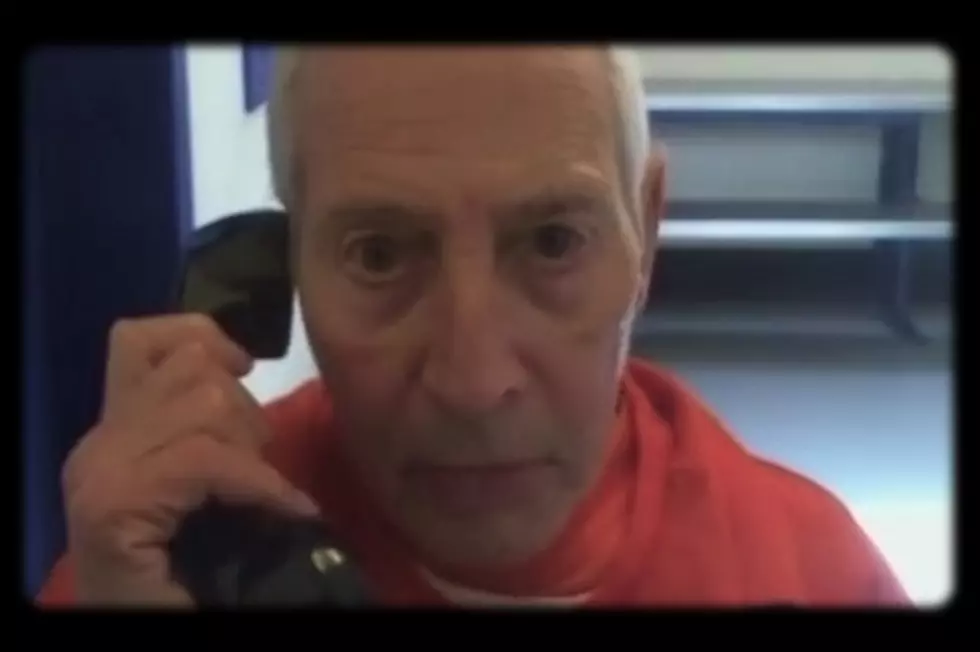
‘True Detective’ Review: “After You’ve Gone”
On tonight's all-new, penultimate episode of 'True Detective' (we know, we can hardly believe it's almost over, either), Marty and Rust reunite in present day -- it's time to pay their old debt on the Dora Lange case, and the cases of every other missing woman and child in Louisiana who went unnoticed. The detectives team up to attempt to solve the mystery of Carcosa and the Yellow King once and for all, and they come chillingly closer than ever.
"After You've Gone" plunges full speed ahead to give us one hell of a gripping episode that inspired more than a few fist pumps from yours truly -- and while Nic Pizzolatto presents more of that particular deep fried, unnerving procedural approach in an effort to propel things forward in an unrelenting fashion, that's not to say he's ditched the philosophy altogether. The opening imagery gives us a record in a jukebox, selected seemingly at random and situated down in its place -- a flat circle, just like time itself. The killer is still out there killing, just like he always has been and always will be unless Marty agrees to help Rust put an end to it. In Rust's appreciation of the fourth-dimensional theory of time, everything has already happened and is happened and will happen again, but there's that variable: the human variable of awareness, and we can intervene.
After some persuasion involving a visit to Rust's insanely awesome storage shed, filled with all of the evidence and theories, objects, photos, and maps he's collected (Carrie Mathison of 'Homeland,' eat your damn heart out), and a very unpleasant viewing of some evidence collected from Billy Lee Tuttle's home (including photos and video of children being victimized), Marty agrees to help Rust solve the case once and for all. As the pair work together, they wonder what their lives might have been like if they had chosen to be good at something else -- and it's not just this idea of being good at a different skill, but not being good at being bad men who catch badder men. 'True Detective' has indulged in the idea that detectives, especially men like these, give into their darker nature, and it's that nature that gives them the ability to identify with those they pursue. We've watched them slip down the slippery slope of darkness, giving into their own weakness -- for Rust that's landed him a life as a bartender and functional alcoholic, and for Marty, it cost him his family. We watch now as he peruses Match.com for a reasonable woman, and there's something delicious about that disgusting look on his face as he chokes down that TV dinner all by his lonesome. Karma's a bitch.
We also learn why Marty left the force: it wasn't his own undoing, as we might have assumed, and it gives us perhaps the most horrific image of the season, as he discovers an infant in a microwave, placed there by a tweaker parent who had the bright idea to try and "dry" it in there. Even Marty has his limits.
"After You've Gone" is the most unnerving and riveting of all the episodes (save for that amazing long take from a few episodes back, of course), and credit to the editing, which holds back from revealing too much, but takes us right to edge before pulling back and allowing us to experience the horror through Rust and Marty's eyes and emotions, making it that much more visceral.
But it's also deftly procedural, and what could be an info dump is handled gracefully -- we learn an awful lot in this hour: yes, the Tuttles and their kin have been performing nasty rape and murder rituals and women and children in the woods for years. A visit with one of the Tuttles' previous housekeepers confirms that the man with the scars on his face (the green-eared spaghetti monster guy) was an illegitimate grandson of Sam Tuttle with the surname of Childress, and through former Marty and Rust co-worker Steve Geraci (now a sheriff of a nearby parish), we learn that this scarred grandchild is related to law enforcement himself -- so yes, Rust was right way back when. And there's something both deeply disturbing and incredibly exciting about hearing Marty tell Rust (whose gravelly voice and vigilante demeanor could be likened to a Backwoods Batman) to get his battery and jumper cables ready to interrogate Steve when they determine he's covering up this huge conspiracy.
Episode's end gives us the man with the scars on his face, who turns out to be the groundskeeper from many episodes back, whom Rust talked to outside that abandoned school when checking into the Marie Fontenot case. And there's something so classically novelistic about his parting words, like a cliffhanger at the end of a chapter in a gritty crime thriller -- I love it. I can't wait to see how this all comes together next week, or how it all falls apart. Animal masks! Rituals! Deep fried vigilantism! 'True Detective' is not letting us down at all.
For further reading, Nic Pizzolatto recently said in an EW interview that you'd find a lot if you searched Google for Satanism in preschools in Louisiana -- and he's right. There seems to have been a real-life case that partially inspired this season of 'True Detective.' Even one of the men implicated in the case has the last name of Fontenot, which is pretty interesting. You can read a New York Times piece that covers much of the story, or dig a bit deeper for some of the more unsavory (and, be warned) deeply disturbing aspects of the story in this local news article.
More From ScreenCrush









